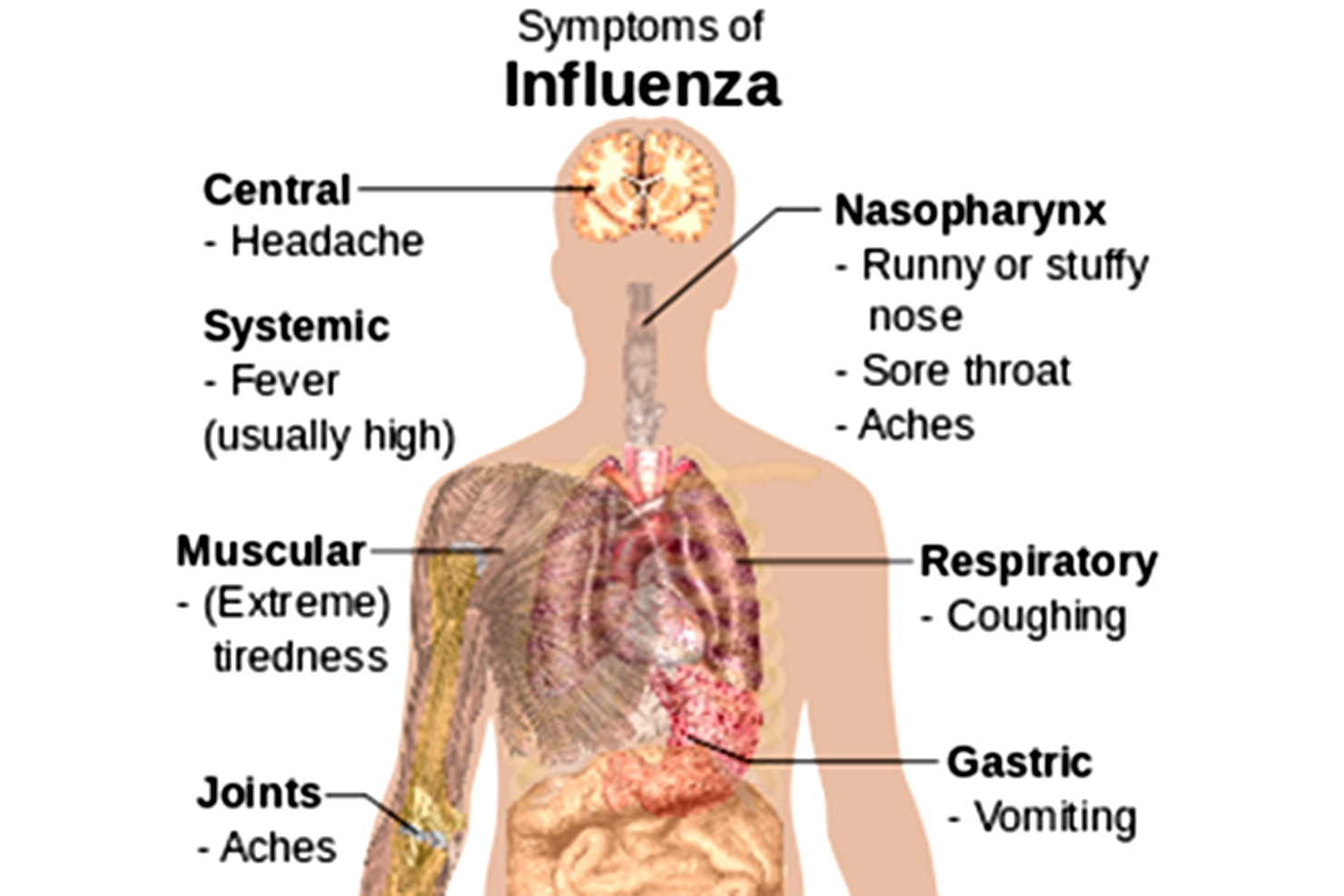The news has been reporting a terrible year for the flu, with comparisons to the 1918 influenza pandemic. The Centers for Disease Control and Prevention, and the Colorado Department of Public Health and Environment have been tracking the flu since the first of October, and here is what they are seeing. There have been over 16,000 cases nationally, and 2,366 cases in Colorado. The age groups most likely to be hospitalized with flu are children under the age of two, and adults over 50, with the very youngest and oldest most at-risk.
What we have seen so far, is that the flu hit hard in late December, and is still holding on, but trending down in the number of reported cases and hospitalizations. This appears to be an earlier flu season than last year, with more hospitalizations. Despite how bad it seems in the media, the rate of hospitalizations in Colorado has been far lower than what we saw in the 2014-2015 influenza season.
Influenza is a respiratory virus that usually has symptoms that include:
- Fever (usually) or feeling feverish/chills
- Cough
- Sore throat
- Runny or stuffy nose
- Muscle or body aches
- Headaches
- Fatigue (tiredness)
- Diarrhea. Some people may have vomiting and diarrhea, though this is more common in children than adults.
These symptoms usually come on fast. Severe cases can lead to pneumonia and can make chronic health problems like asthma and heart disease worse. There are medications that can help to shorten your time with the flu, but they have to be started right away. See your primary care provider as soon as possible after symptoms start. Urgent care centers are a good option for evening and weekend hours.
Flu can be prevented with influenza vaccine (flu shot). These are still available at your doctor’s office or pharmacy. While this year’s flu shot has been less effective than other year’s (about 30 percent), it may make your symptoms easier to manage. Other ways to prevent the flu are:
- Try to avoid close contact with sick people.
- While sick, limit contact with others as much as possible to keep from infecting them.
- If you are sick with flu-like illness, stay home for at least 24 hours after your fever is gone except to get medical care or for other necessities. (Your fever should be gone for 24 hours without the use of a fever-reducing medicine.)
- Cover your nose and mouth with a tissue when you cough or sneeze. Throw the tissue in the trash after you use it.
- Wash your hands often with soap and water. If soap and water are not available, use an alcohol-based hand rub.
- Avoid touching your eyes, nose and mouth. Germs spread this way.
- Clean and disinfect surfaces and objects that may be contaminated with germs like the flu.
- Stay hydrated, get good nutrition, and stay active. These things support a healthy immune system.
Walk-in flu shots are available at the Southern Ute Health Center. Call 970-563-4581 with questions.
For more information about influenza visit www.cdc.gov/flu.

